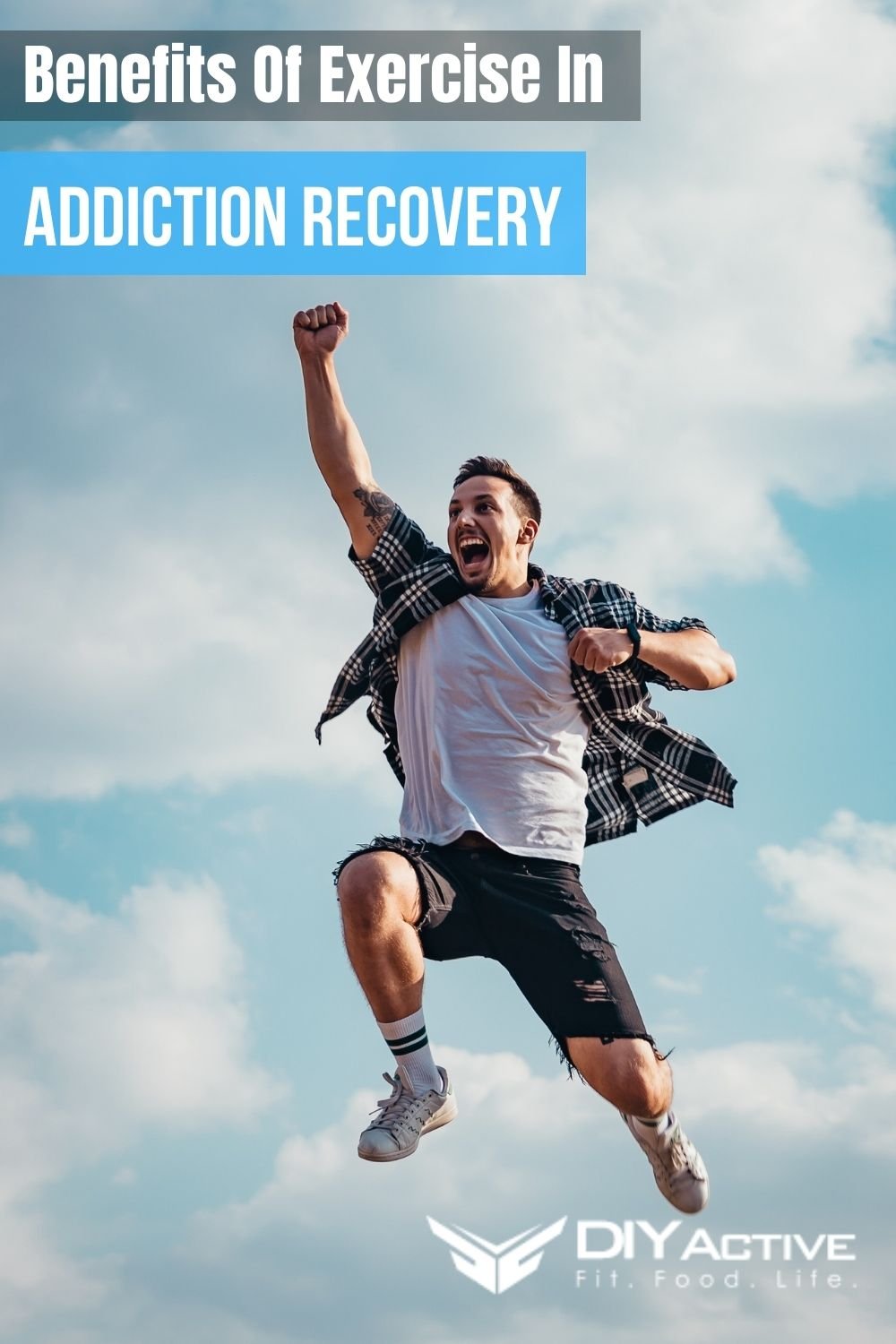For what seems like decades, the benefits of exercise on physical, mental, emotional, and spiritual health have been hailed.
How Exercise Can Help You In Addiction Recovery?
Whether you’re reading peer-reviewed journals or skimming through photographs of the current CrossFit craze on Facebook, one thing becomes clear: exercise has its advantages.
- What, though, is the link between exercise and addiction and recovery?
- After all, how does going for a brisk walk, lifting weights, or playing a pickup game of basketball help you get and stay clean and sober?
There’s a lot more than you might expect.
The body is undergoing various adjustments as it adjusts and recalibrates to a life without alcohol or drugs. While these changes are beneficial in the long run, they may appear horrific and excruciating in the short term.
So, let’s find out how exercise impacts addiction recovery.
How Does Exercise Benefit Addiction Recovery?
You may know that many people turn to drug addiction because they have underlying mental health issues. This is why drug rehab centers always opt for a dual diagnosis treatment while treating addiction patients.
Now, it doesn’t matter if you became addicted to drugs due to mental health problems or your addiction led you to develop psychological issues; exercise can help you get through this phase.
Let’s find out how:
1. It Helps In Stress Reduction
When people cross the line into alcohol or drug addiction, the stress relief that they formerly had from a glass of wine or beer after work is typically a distant memory.
In an attempt to relieve tension, increased amounts of alcohol or narcotics are ingested.
The alleviation from stress, on the other hand, the relief from stress becomes ephemeral and eventually vanishes. Alcohol or drug abuse is frequently a direct source of stress.
So, when a person decides to seek drug or alcohol treatment, does the tension mentioned above go away as well?
If only it were that easy, right?
Fortunately, any physical activity that boosts the heart rate can be used to reduce stress.
2. It Helps You Sleep Better
Sleep problems are frequent, especially in the early stages of recovery.
Regardless of whether the drug of choice is a stimulant like cocaine or a depressant like alcohol, the discontinuation of such substances can have a significant impact on sleep.
It’s possible that recovering people will have trouble falling asleep, remaining asleep, or wanting to sleep in the middle of the day, leaving them sluggish and tired.
While non-habit-forming over-the-counter medicines may be helpful, a more natural solution can be used.
Regular exercise can help you sleep better, both in terms of the number of hours you sleep and the quality of your sleep, and it can also help you resist the urge to nap in the middle of the day.
3. It Increases Your Energy
Exercising is a sort of energy expenditure. Therefore, if one needs to receive energy, one must first offer it.
Blood is pushed more vigorously through the heart during activity, and oxygen levels in the body rise.
The increase in oxygen levels that comes with regular exercise helps to improve overall energy.
Furthermore, as the body’s cardiovascular and physical fitness improves, daily activities become easier to do.
This is precisely why many people choose to exercise first thing in the morning: the energy used in the morning is used as fuel for the rest of the day.
4. It Improves Your Mood
During the detoxification process from alcohol or drugs, mood swings are common. Even after detoxification, mood swings are common, especially in the early stages of recovery.
One minute, the recuperating individual may feel on top of the world, and the next minute, he may feel discouraged and lost. It’s because the body is adjusting to life without alcohol or drugs, so these emotional shifts are to be expected.
How may exercise help someone in recovery to feel better?
One of the compounds released by the body after exercise is endorphins. Endorphins are responsible for sensations of happiness and bliss. Happiness and exhilaration were the same hoped-for sentiments that fueled and sustained drug and alcohol abuse.
If you take post-workout snacks, they will also improve your mood.
5. It Protects Brain From Drugs
Long-term alcohol and drug misuse deteriorate the brain’s white matter, which is made up of tracts of connections that connect brain cells.
Regular aerobic exercise, such as running or cycling, can protect the brain from this damage.
Another study from the University of Maine discovered that people who exercised regularly while going through alcohol withdrawal were less likely to have seizures.
Exercise protects against a variety of drugs, not only alcohol.
Exercise can partially protect people from the neurotoxic effects of repeated methamphetamine binges. Methamphetamine causes dopamine transporters, which are crucial in the brain’s ability to process motivation and reward, and that’s why exercise is essential in addiction recovery.
6. It Reduces Drug-Seeking Behavior
Exercise can also aid in the reduction of the desire to smoke, as well as the decrease in drug-seeking behavior.
A combination of cognitive-behavioral therapy and exercise, according to the NIDA, can help individuals quit an addiction.
When paired with nicotine replacement, exercise is more effective at preventing weight gain in smokers than nicotine replacement alone. Since nicotine suppresses hunger, many people who try to quit smoking gain weight after quitting, prompting them to pick up smoking again.
According to a study published by Brown University, women who exercised vigorously three times a week for 12 weeks were twice as likely to quit smoking than women who did not.
7. It Protects Against Diseases
Regular exercise can help you manage symptoms and improve your health since you have disrupted the health-wellbeing ratio with drugs and alcohol for so long.
Aerobic exercise can help you lose weight while improving your heart health and endurance.
For the most part, high-intensity interval training is safe and effective, taking less time. Therefore, you alternate high-intensity interval training with low-intensity interval training for brief periods in high-intensity interval training.
Even higher-intensity activities like walking count.
Strength exercise can enhance muscle strength and endurance, simplify daily activities, delay disease-related muscle weakness, and give joint stability.
Are You Ready?
Since exercise has so many benefits to support someone going through addiction recovery, you better get ready to include exercise in your daily routine.
Once you make it a daily habit, you will comprehend how smooth your post-recovery journey is going.
So, if you require more information on it, ping us in the comment section.
Photo by The Lazy Artist Gallery from Pexels
Photo by Vlad Chețan from Pexels



I’m truly impressed by your profound understanding and stellar ability to convey information. Your depth of knowledge shines through in every piece you write. It’s clear that you put a lot of effort into understanding your topics, and this effort does not go unnoticed. Thanks for providing this valuable knowledge. Continue the excellent job! https://rochellemaize.com
I’m thoroughly captivated with your keen analysis and superb way of expressing complex ideas. The knowledge you share clearly stands out in every piece you write. It’s clear that you put a lot of effort into understanding your topics, and the results is well-appreciated. Thank you for sharing such valuable insights. Keep up the great work! https://www.elevenviral.com
I completely agree with your points. Well said!
Great read here! I really gained a lot. Visit us at https://thefoundationkings.com/ for all your underpinning needs.
This was an insightful post! It was very educational. Check out https://thefoundationkings.com/ for expert basement lowering services.
I am genuinely amazed by your deep insights and stellar ability to convey information. Your expertise is evident in each paragraph. It’s obvious that you spend considerable time into delving into your topics, and this effort does not go unnoticed. Thanks for providing this valuable knowledge. Keep up the great work! Learn more about our OnlyFans Agency: https://elevenviral.com/onlyfans-marketing-growth-service/
I’m thoroughly captivated by the deep insights and excellent way of expressing complex ideas. Your depth of knowledge shines through in every piece you write. It’s evident that you spend considerable time into understanding your topics, and this effort does not go unnoticed. Thank you for sharing such valuable insights. Keep on enlightening us! Learn more about our OnlyFans Agency: https://elevenviral.com/onlyfans-marketing-growth-service/